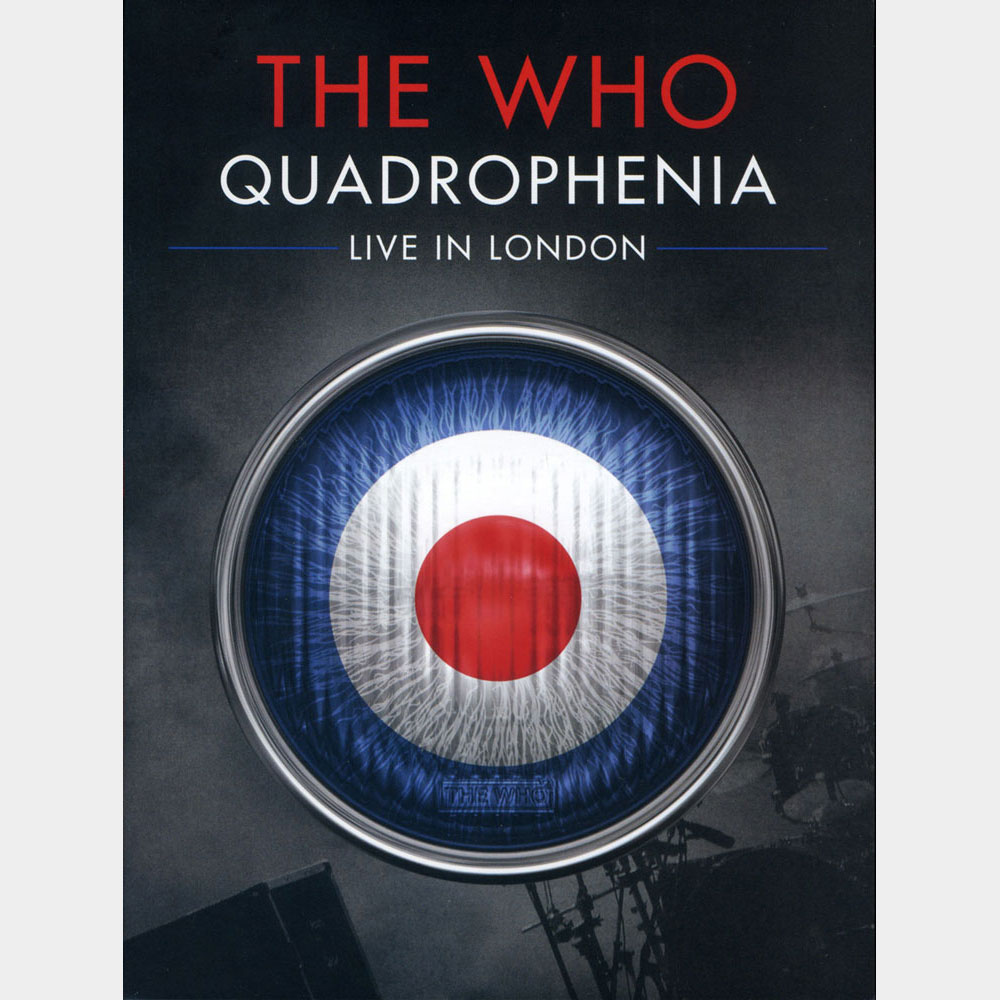
- The who quadrophenia mod#
- The who quadrophenia mods#
- The who quadrophenia code#
- The who quadrophenia free#
The who quadrophenia code#
All current members of the official The Who Fan Club, as well as any new members who join, will be given an exclusive member’s only code that will activate the offer. The offer begins at 10:00 AM on July 20 and expires July 22 at 10:00 PM.

In addition, subscribed members of The Who’s official fan club will be given priority access to purchase tickets for the upcoming “Quadrophenia” tour. **See a Q&A with Pete Townshend near the end of the release. Founding members ROGER DALTREY and PETE TOWNSHEND will be joined by Zak Starkey (drums), Pino Palladino (bass), Simon Townshend (guitar/backing vocals), Chris Stainton (keyboards), Loren Gold (keyboards/backing vocals) and Frank Simes (musical director, keyboards/backing vocals). IMO this (The Who: Quadrophenia) is probably one of the most under appreciated albums from that generation of concept-albums. The critically acclaimed QUADROPHENIA marked the British band’s second rock opera (after Tommy), raised the bar for rock albums as an art form and hit No.
The who quadrophenia mod#
162 (Juli/August 2014).THE WHO, one of rock’s legendary and defining bands, have announced a major North American arena tour where they’ll perform their iconic 1973 double album QUADROPHENIA in its entirety, along with a selection of WHO classics Saturday, February 16 at the KFC Yum! Center. In the end, there may have been too much weight, as Townshend tried to combine the story of a mixed-up mod named Jimmy with the examination of a four-way split. I was just coming down under the pier from a few Uppers I had swallowed, and suddenly the sensations of that time came back the feeling of falling, of depression, tragedy, forlornness and hopelessness." Quadrophenia (1973 Release 2cd 1985 2cd Original Master Recording Japanese Discs) Mca Records Mcad2-6895 Didx-351/didx-352.

The who quadrophenia mods#
When I came down from that stuff, alone in my cabin in Cleeve, I suddenly remembered my youth: It was 1964, I was nineteen and slept with my girlfriend Liz Fraser under the Brighton Pier after a night marked by the legendary street fights between mods and rockers. Townshend: "I haven't taken drugs since 1967, but Ric Grech, who played bass for Eric Clapton, persuaded me to try amyl nitrite. His idea: "Four Faces", a double album on which every band member should compose one side or at least "curate" - Townshend hadn't thought that much about it yet - in order to reflect his personality musically.Ī drug-induced daydream led to the decisive further development of the idea. The four characters of The Who should be the focus of a new concept. The rather pragmatic Townshend distanced himself from Cohn's ideas, but he gladly took up his basic idea, especially since he had already written a few songs for the project.
The who quadrophenia free#
However, Cohn came to Townshend with a film treatment and told him - the free spirit of the sixties still blew quite strongly - that the finished film would take at least eight hours to live up to the story. Still with a sense of commitment to the fans to compose a monumental rock opera, Townshend worked with journalist Nik Cohn to develop a new concept: "Rock Is Dead - Long Live Rock" was to pick up on the four personalities of the band members, mythically transfigure them and, as the latest state of the art was, unite them in a single character, Jimmy, at the narrative level. And some others just lay around and should be reworked to something new. Some "Lifehouse" tracks also appeared on Townshend's 1972 factual solo debut "Who Came First". The core of the already finished compositions, among them "Baba O'Riley" and "Won't Get Fooled Again", then formed the album "Who's Next", which was initially unloved by the band and presented a loose sequence of songs. But "Lifehouse" failed - at least in its planned form - because the band mates didn't want to follow Townshend's ideas. So in the early seventies, Townshend began with the conception of the multimedia "Lifehouse" project, which is still legendary today and which was about a future in which people can pull music directly out of their bodies via cable entrances.

The only problem was: the fans expected more in this direction. There is, arguably, no other album in the Whos discography that divides fans opinions more than 1973s Quadrophenia. By recording a rock opera - in our opinion just a sequence of good singles, but implying a cohesive and therefore more significant and challenging musical experience - we as a band have survived one of the most turbulent periods in rock history"

"People suddenly wanted to hear 'serious' music from pop groups. Basically, The Who had been a singles band in the sixties the sudden intellectualization of pop music had posed a new, unexpected challenge to its thought leader. "'Tommy' changed everything and saved us," Pete Townshend remembers in the introductory essay to the 2011 re-release of "Quadrophenia".


 0 kommentar(er)
0 kommentar(er)
